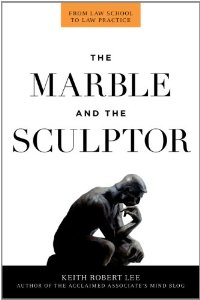By now I presume that everyone has read the op-ed in the New York Times by Case Western Reserve’s law school dean, Lawrence Mitchell, entitled “Is Law School Worth the Money?” In the op-ed Dean Mitchell makes the pitch that going to law school is still a good idea and a solid return-on-investment. As expected, Dean Mitchell was immediately eviscerated.
Ellie Mystal, editor at Above The Law, and long time vocal opponent of law school employment claims & statistics, couldn’t be bothered fully addressing the piece. Mystal has attacked similar claims so many times that he’s actually growing rather weary of it all:
I could probably spend 10,000 words eviscerating the argument put forth in Dean Mitchell’s piece. Just look through our archives, and I’m sure you’ll find a counter to every single point he makes…
…It’s amazing that these people still have the heart to ask you to spend three years and hundreds of thousands of dollars in something that doesn’t immediately result in a job, but law deans have to eat, too.
Paul Campos, of Inside the Law School Scam, came out with a blistering line-by-line deconstruction of Dean Mitchell’s op-ed:
Getting people to spend $200,000 for a 50/50 shot at a legal job of any kind is getting harder every day…
…If we (again) gather no actual data on the extent to which people with law degrees find long-term career success doing things other than practicing law, and in addition we assume that whatever success we observe anecdotally among non-practicing law graduates can be attributed wholly to the “skills” that law schools supposedly impart to people to do things other than practice law, we start to look pretty good.
Alison Monahan, from the Girls Guide to Law School, comes right out and says “Law Deans You Are The Problem:”
The reality of the situation is that law school debt is an ongoing disaster for many graduates.
To ignore that reality, and just throw up your hands (as the dean of a law school!) and say, “Oh, wait 20 years and you’ll have plenty of money to pay it back,” is insulting and unrealistic…
…For law school deans to pretend otherwise — or to imply that anyone discussing the obvious shortcomings of the existing legal educational complex is somehow unfairly dissuading people from going to law school — is simply irresponsible.
You’re part of the problem, and it’s real. Deal with it.
Finally, Scott Greenfield, Simple Justice, addressing a an email that was posted on Inside the Law School Scam, tells law deans to cut the crap:
Yet the email to Campos reflects the brutal reality. The writer concedes the depression his choice brought him, and later in the email, admits to thoughts of doing harm to himself. Would it bother you greatly, Dean Mitchell, is you found out some kid read your op-ed, became a lawyer, and took his life? Or would that just be collateral damage to the more important cause of filling your law schools empty seats?
It’s time to make it plain. Cut the crap. These are real people’s lives you’re screwing with. Law deans don’t get a free pass on bullshit any more than anyone else.
Greenfield’s post, and the linked email (which you should read) hit the closest to home as a couple weeks ago, I received an email from a young lawyer we’ll call “John.” It is as follows:
I enjoy your blog very much. However, there is one issue I’ve never quite heard addressed on your blog. How many of us earned a law degree, passed the bar, and found ourselves going from job to job (with some gaps in between) without making much money? More than that, how many of us found ourselves without any “meaty” associate work, leaving us six years into our practice without feeling like we’ve developed any practical lawyering skills?
I know you’ve addressed people’s problems with finding work, but how many of us feel the way I’ve described above?
Take me, for example. I graduated from a Tier 4 law school, but I was in the top 15%, served on law review with my student note published, and clerked for a state appellate court over the summer. I passed the state bar without incident in 2006. After searching everywhere, I could only find a job with a solo practitioner who paid $33,500/year, treated me terribly, only had me perform legal research, and ended up firing me 7 months into the job. After that, I worked for a school alumnus for free and spent most days reading my own books since he didn’t have enough work for me.
I then went to work for an insurance defense law firm, which paid over $68,500 a year, the most I ever made. They had me working on Hurricane Katrina cases, which required me to draft response letters to insureds claims, drafting some petitions, and performing legal research. I worked as hard as I could, even though I didn’t know how to do anything and couldn’t approach the other attorneys with questions (even if I had known what to ask), given the firm environment. After one year, the firm let me go. The official reason I was let go was that the major hurricane litigation was ending, so the firm was downsizing. In reality, they said they weren’t seeing me progress as quickly as they’d like, so they were letting me go. I had worked myself ragged, trying the hardest I could to create the best work product without any kind of mentoring or guidance, and I still got fired! This made 3 jobs in two years!
By then it was the fall of 2008. I went almost a year without an attorney job, interviewing constantly.
Finally, I was hired by a small firm to work on drywall litigation. They had to hire me as “of counsel”, which meant I was paid $29/hour. The environment there was good, and I learned a little more about writing and handling files, but I still hadn’t handled a single deposition or taken a case to trial. In my entire time at this firm, they sent me on two depositions. I didn’t even know what objections you could make at depositions or how to respond! I certainly didn’t know about procedure, beyond the clinical points you read in the code! There simply wasn’t enough work for them to give me. Although I loved the firm and they claimed they were very pleased with my work, the firm lost its big client. This meant that, after a year and a half, I was let go yet again. This made four firms in four years.
Because the job market was so bad by then, I had to move to Texas to do document review, leaving my family and friends behind.
This makes my resume toxic. Even when I explain in my resume that I was let go due to forces beyond my control (only partially true in the case of the hurricane litigation), prospective employers will still likely believe I’m just stupid or unreliable.
And so here I am, six years with a law license. I’ve worked at 4 firms and done document review, the most I’ve made is $68,500 a year (only for one year), I’ve done two depositions, and taken no cases to trial. I feel like a complete failure as a lawyer.
Am I really a failure, did I just have bad luck with the places I went to work and a lack of opportunities to learn-by-doing, or could I be in better shape than I thought?
If you could answer this question, or address it in your blog, I’d appreciate an honest opinion, whether good, bad, or ugly. I apologize if this email is a bit rambling. I just finished a 12 hour day of document review. That’ll make anyone blither.
“John”
P.S.: I’ve started my own firm, though I’ve made less than $1,000 in revenue so far.
Like Greenfield says in his piece, “For us old guys, like me and Mitchell, we’re debating the virtues of a profession. For the writer of this email to Campos, it’s his life.”
The current legal job environment is not a matter of speculation for John, it is his life.
Would John have made the same decision to go to law school years ago if he knew he would be in this position? Did his law school education prepare him for a career as a practicing lawyer? Was he informed that there were not likely jobs for him – certainly not “big law” jobs. Was he aware of the bi-modal distribution of lawyer salaries?
The argument can be made that John should have been aware. He is an adult, capable of performing his own research and making his own decisions. No one forced him to go to law school. But the pertinent question is this:
Was there any reason John should have doubted the assertions made to him by his law school? Should he have not trusted those who theoretically had his best interest in mind?
John is not alone in his plight. Go to Inside the Law School Scam, Reddit, Top Law Schools, or Law School Discussion and you’ll find hundreds of messages and topics by young lawyers commiserating in each other’s job prospects or lack thereof.
I don’t know if John is a failure. I don’t know where he fits among all the other new lawyers out there struggling to find a job. But Soichiro Honda, the founder of Honda Motor Co., once said the following:
Success is 99% failure.
If you got into being a lawyer, anything at all in life really, thinking you would never fail, you are delusional. Everyone fails in life to some extent. Maybe they fail their family. Maybe they fail their friends or their job. It’s a part of life. You can let failure define who you are or you can use it as the foundation for growth.
I said it a year ago, but it bears repeating, There Has Never Been A Better Time To Be A Lawyer:
Decades go by in which things are flat and there isn’t any change. People trudge by in their jobs and go through the motions at work. No innovation, creative thinking, or demands on efficiency or productivity. This ain’t one of those decades.
The practice of law is in an incredible state of flux. But in times of great change, there are also great opportunities.
[divider]
In the past, law firms and clients were the ones left footing the bill to train new lawyers – but no longer. Now law firms and clients expect new lawyers to be able to hit the ground running. Especially considering that with the oversupply of lawyers available, it is easier than ever for law firms to pick up experienced lawyers for low rates. As such, many new lawyers are left without guidance or direction.
 Bottom Line: If you want to become a successful new lawyer, you must dedicate yourself to systematic, continuous improvement.
Bottom Line: If you want to become a successful new lawyer, you must dedicate yourself to systematic, continuous improvement.
Associate’s Mind is here to help you with that goal. The first step? Subscribe to Associate’s Mind below (it’s free) and you’ll get news and commentary on the legal industry, professional development strategies and tactics, technical how-to’s and guides, and more. You can also pick up a copy of my book, which provides an overarching blueprint for transitioning from law school to law practice.
















